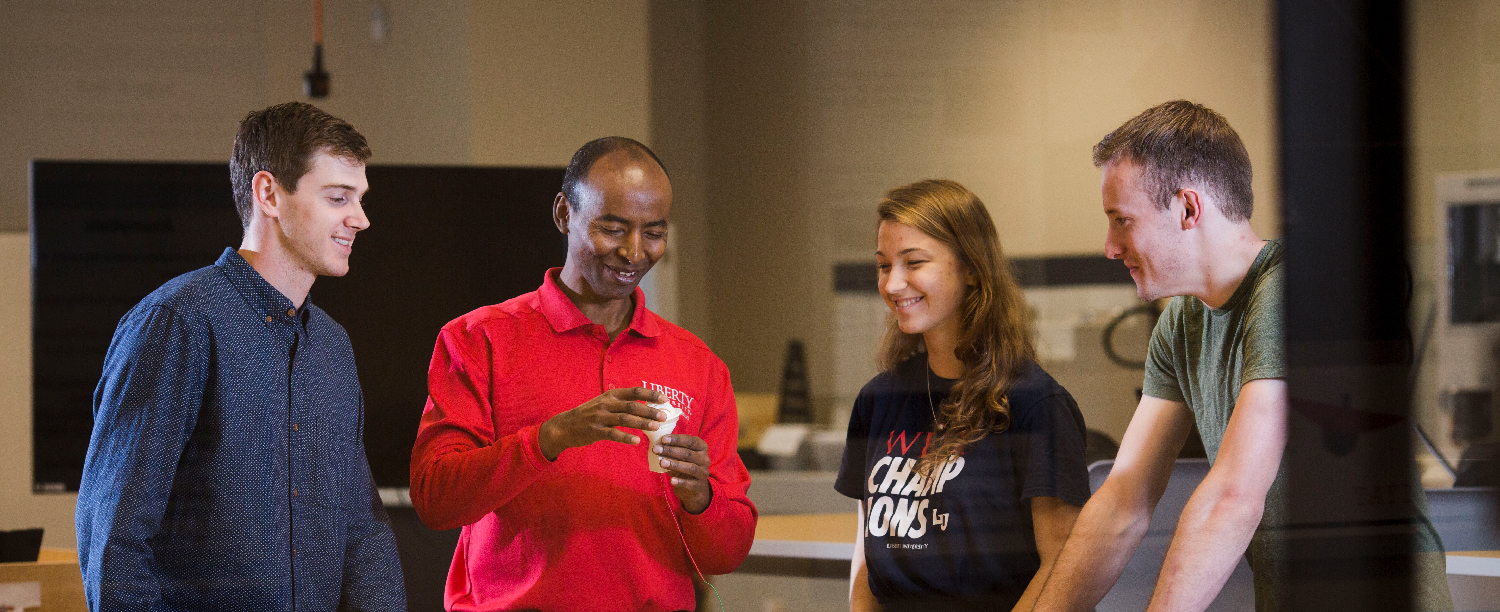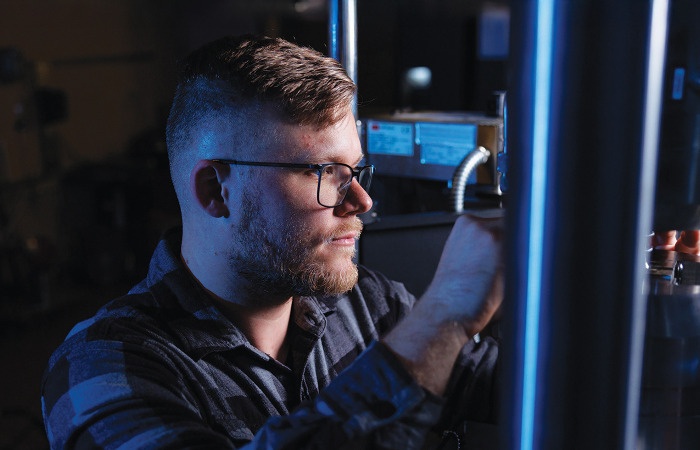Dr. Ephraim Zegeye, associate professor of mechanical engineering in Liberty University’s School of Engineering, is working to create a low-cost breast cancer screening device that could provide readings via a mobile phone.
A team of students from both the electrical and mechanical engineering degree programs are helping Zegeye create a prototype. The project involves programming, circuitry, materials processing, 3D printing, and a lot of problem-solving.
The handheld device uses automated palpitation (sensing by touch) with a synthetic “e-skin” covering that is applied to the body. Scans would be sent to a mobile app, so the user would only need to see a doctor to follow up if an abnormality is detected.
For Zegeye, the project is a perfect combination of his two passions: “helping those who are suffering in underdeveloped countries and my interest in developing products. I want to make things and see them work.”
Zegeye grew up in Ethiopia. After gaining engineering experience in the U.S., he continued to think about the struggles his people faced, especially limited access to healthcare. Zegeye even worked on a cancer detection project during his postdoctoral research at the University of Maryland but believed it was too complex to be accessible. He began to think about opportunities that could be smaller and cheaper, available to people whether they are in America and want to avoid the awkwardness of an exam room or in a third-world country where cancer screening is still rarely even considered. He also noted that small voltages used are less harmful than MRI scans.
“There is a lack of skilled manpower, not enough doctors to treat (people), and it is very difficult to get access to mammography, CT scanning, and that leads to deaths,” Zegeye said of the third world. “If we make this thing work, it saves a lot of people.”
Future plans call for the device to be patented and manufactured. Zegeye and his students will also publish academic papers and give research presentations on the project.




